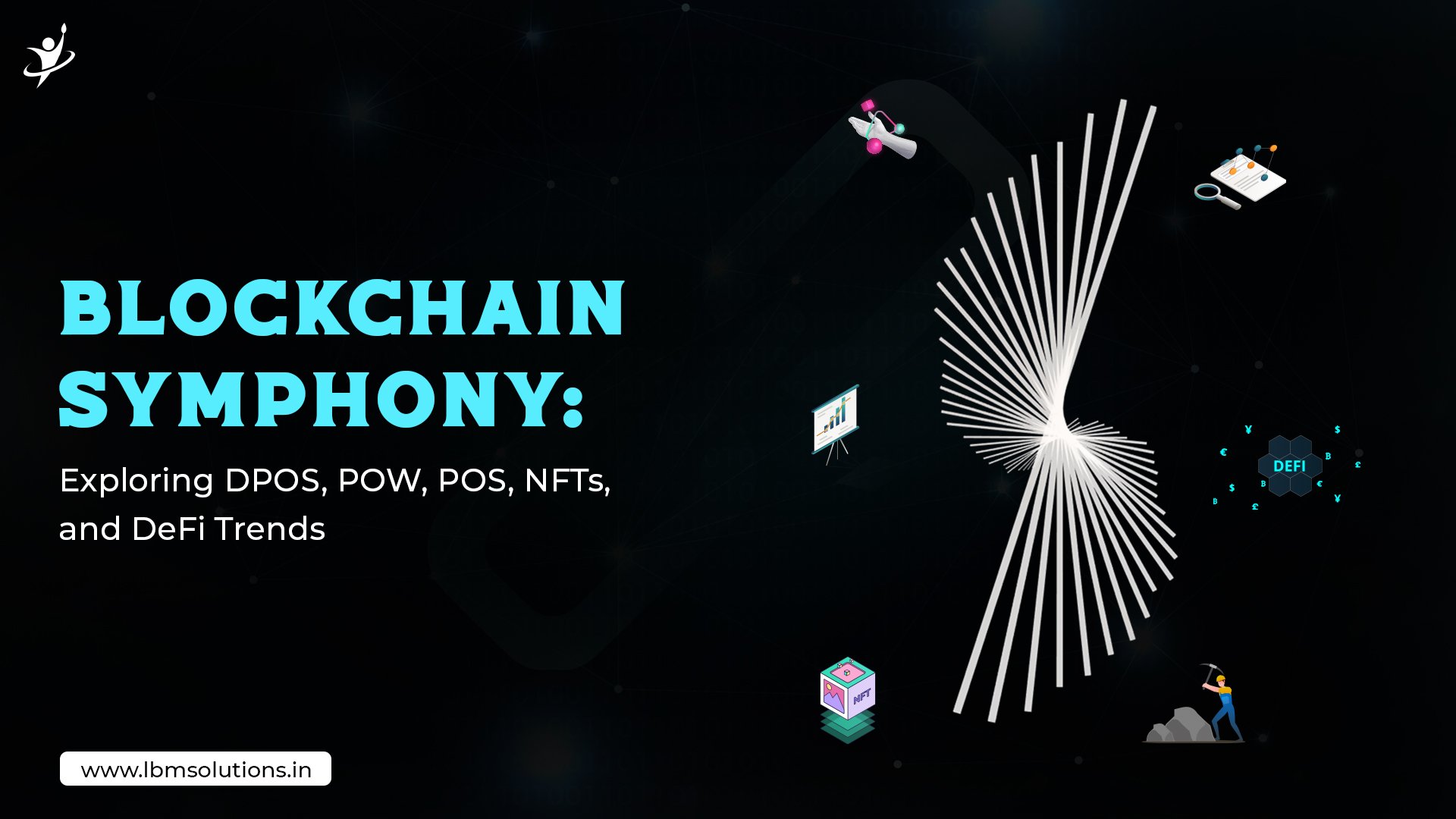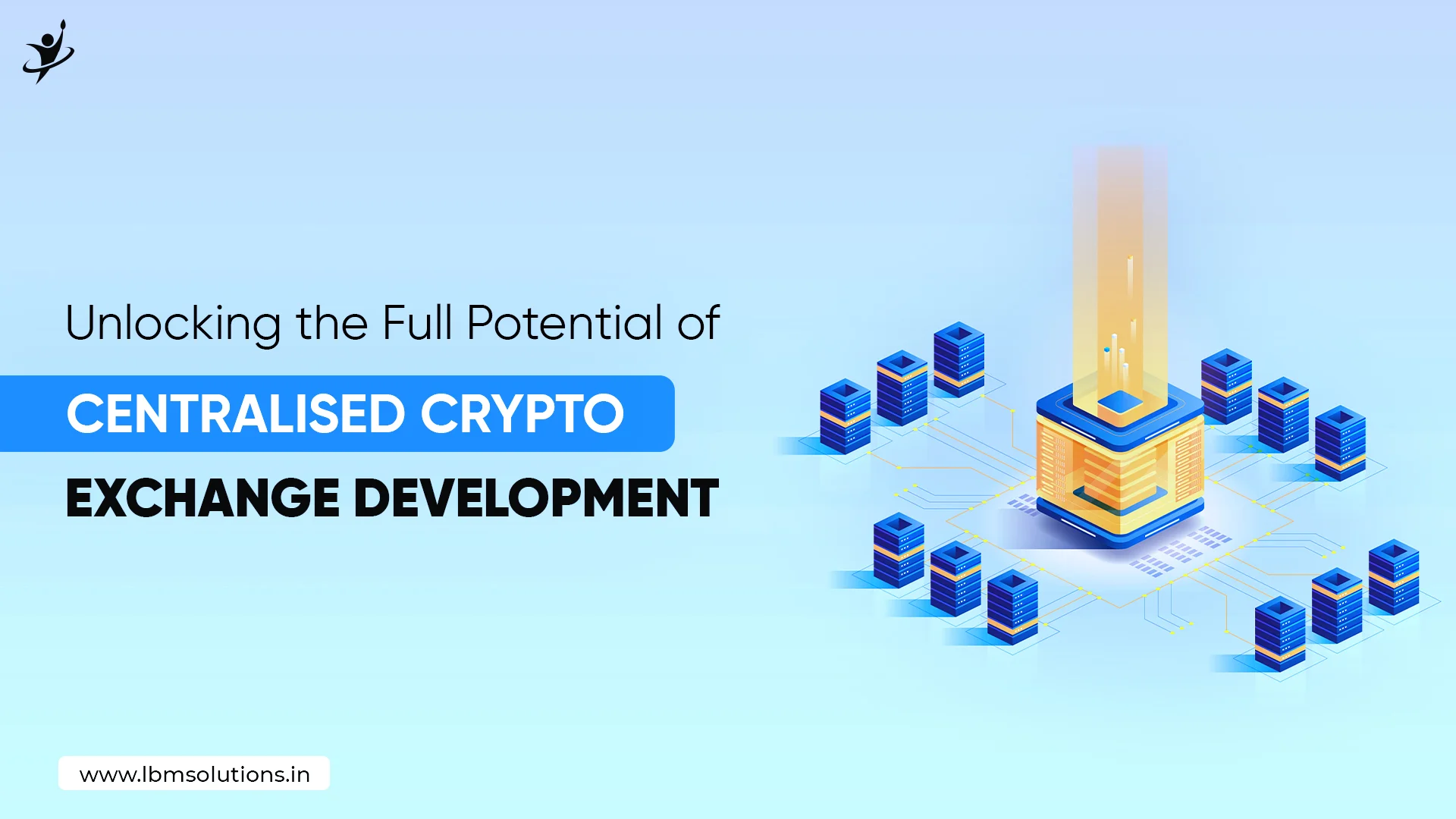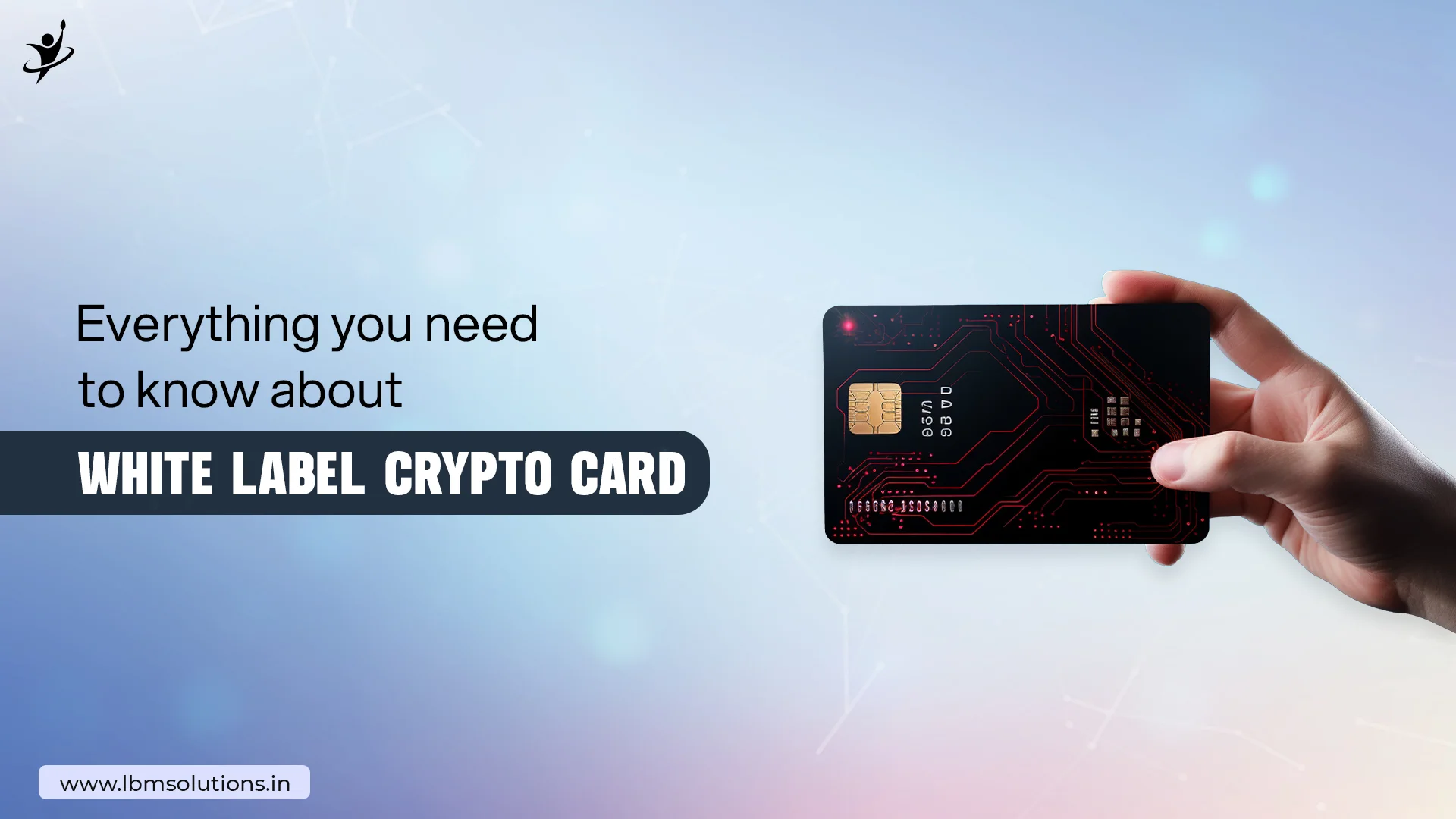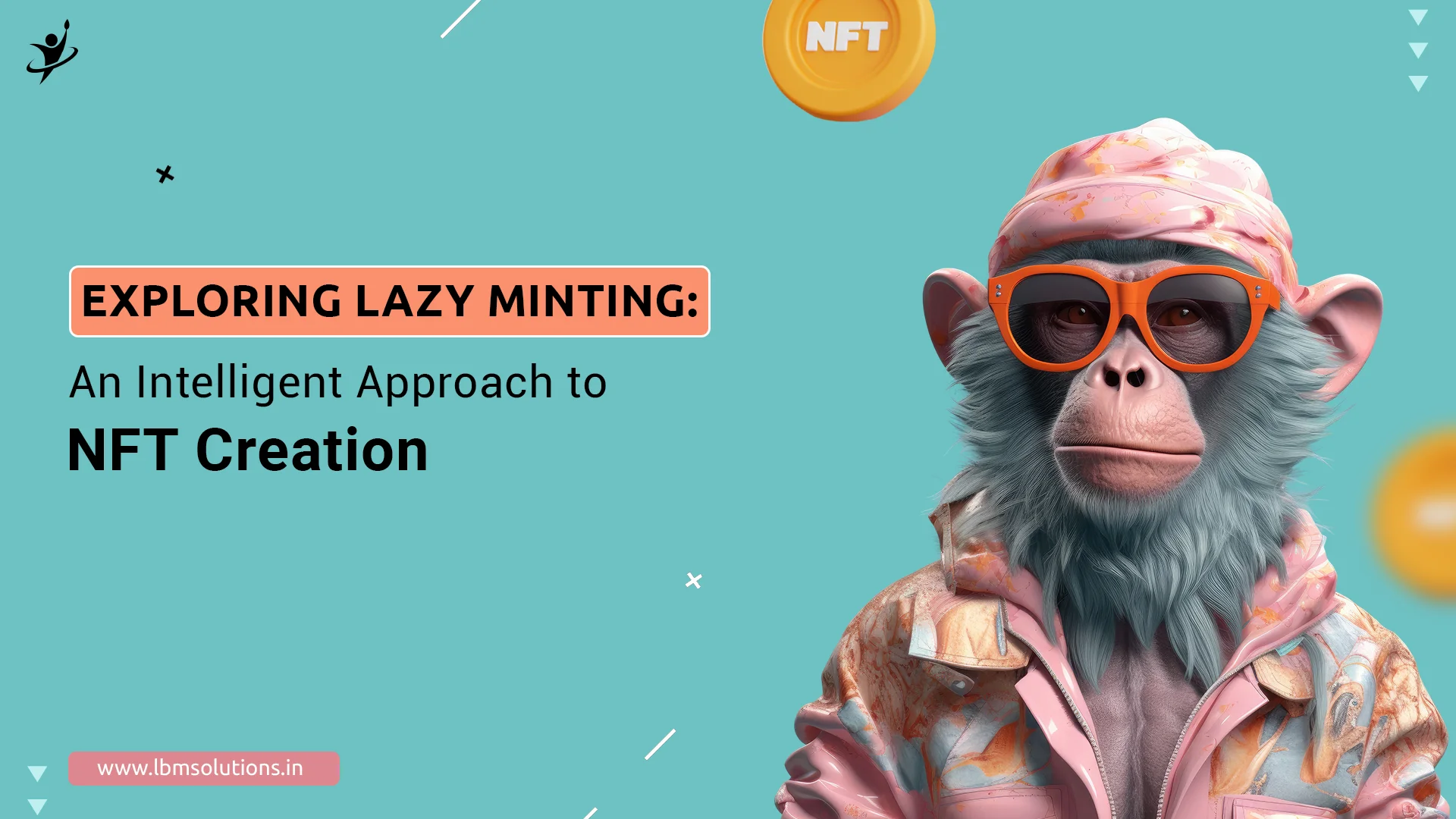In the ever-evolving landscape of blockchain technology, we embark on a profound journey, uncovering the layers of Delegated Proof of Stake (DPOS) and exploring the impactful role of blockchain development company. As we look into the research of DPOS, our exploration extends to the global impact of blockchain, the transformative nature of smart contracts, and the collaborative efforts shaping the future of decentralized technologies.
Let us see how in this blog we can demystify DPOS, decode its applications, and navigate the innovative landscape of blockchain development, providing insights into the dynamic evolution of this revolutionary technology.
Decoding DPOS Tron
DPOS goes beyond efficiency and scalability. Picture it as a dynamic assembly of elected validators working together. Their efforts not only ensure rapid transaction confirmation but also contribute to the adaptability of the Tron platform. This adaptability, a key feature of well-implemented DPOS, addresses the diverse needs of its user base, making Tron a responsive and user-centric blockchain.
Advantages of DPOS
- Speed and efficiency – DPOS’s rapid block confirmation prioritizes use experience and responsiveness
- Security – Precisely selected validators establish a trustworthy digital environment, ensuring secure digital transactions.
- Decentralization – DPOS maintains a delicate balance between efficiency and decentralization preventing undue centralization and preserving the benefits of a decentralized network.
Applications Beyond Tron
DPOS’s influence extends far beyond Tron, impacting other prominent blockchains like EOS and BitShares. Its versatility in diverse blockchain environments emphasizes its role in reshaping the broader blockchain landscape and contributing significantly to ongoing decentralization efforts.
Smart contracts come as key players in blockchain development. These self-executing contracts, empowered by code, find a natural ally in DPOS. The efficiency and speed of DPOS complement the automation and security provided by smart contracts, not only catalyzing decentralized applications(DApps) but also the broader acceptance of blockchain technology across industries.
Beyond PoW and PoS: Exploring Blockchain Consensus Mechanisms
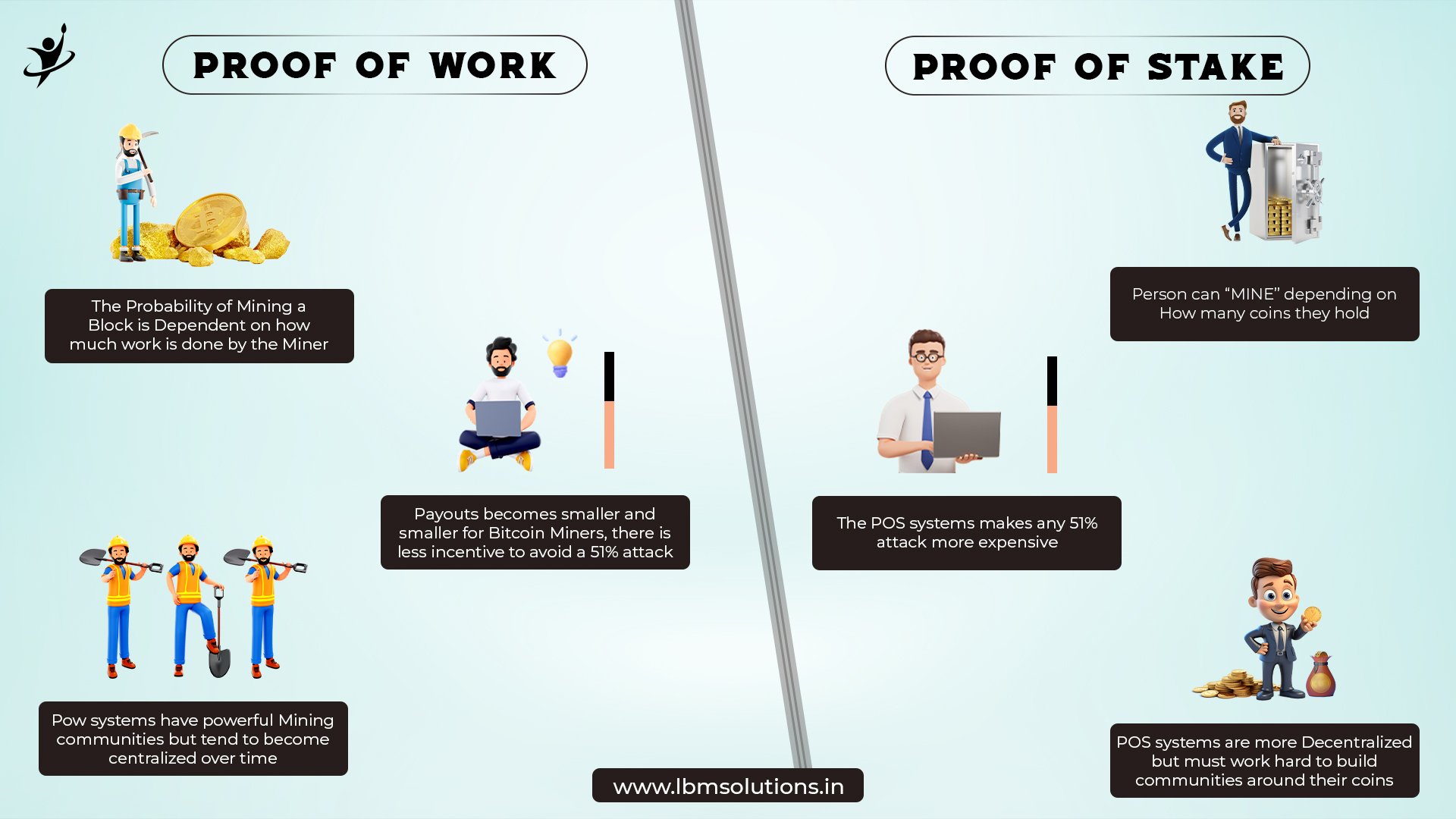
Proof of Stake Mining
Beyond Delegate Proof of Stake DPOS, the shift to Proof of Stake mining (PoS) gains balance for its environmentally friendly approach. PoS validators, holding cryptocurrency stakes, play a pivotal role in validating transactions. The significant reduction in the carbon footprint positions PoS as a sustainable alternative to energy-intensive Proof of Work (PoW) mechanisms.
While DPOS is a strong consensus mechanism, it is not the sole player. Numerous blockchain projects implement DPOS, each contributing a unique application. Understanding this diversity is crucial for grasping DPOS’s full impact on the broader blockchain ecosystem. The collaborative efforts of global blockchain developers to implement and refine the DPOS blockchain showcase a communal spirit driving innovation in the blockchain space.
Hybrid Approaches and Security Considerations
The dynamic nature of the blockchain ecosystem prompts the creation of hybrid models, combining different blockchain consensus mechanisms. A well-designed hybrid model might integrate both PoW and DPOS, seeking a delicate balance between security and scalability. This adaptability highlights the flexibility of blockchain networks, capable of evolving to meet changing needs.
As the blockchain landscape grows, security remains a top focus for development companies. While DPOS enhances efficiency, maintaining an exact balance between speed and security becomes even more critical. Blockchain developers actively address these challenges, implementing robust security measures to ensure the integrity and flexibility of the network. This commitment reflects the industry’s dedication to building trust among users and stakeholders.
The Role of Blockchain Development Company
Blockchain development companies emerge as creators, shaping the future of decentralized technologies. Their expertise becomes increasingly critical in advancing not only the DPOS blockchain but a crowd of consensus mechanisms. These companies play a pivotal role in crafting scalable and secure solutions, acting as the backbone of the industry’s progress.
The collaborative spirit increases as leading companies forge partnerships to enhance blockchain technology. Collaborations between development companies and blockchain projects advance innovation, creating a synergistic environment that benefits the entire industry. The partnership between IBM and Stellar represents how collaboration can drive meaningful advancements in blockchain technology. As the blockchain space matures, anticipate more strategic collaborations pushing the boundaries of what is achievable.
The transformative impact of blockchain development companies extends beyond finance. Sectors like healthcare, supply chain management, and governance witness monumental changes facilitated by these visionary companies. Global influence is evident in projects like VeChain in Delegated Proof of Stake (DPOS), revolutionizing supply chain transparency worldwide. As these technologies become more widespread, the impact on global systems and industries deepens
Governments globally recognize the potential of blockchain for identity management, secure data storage, and transparent governance Collaborations between development companies and governments aim to create efficient, transparent, and secure public services. Initiatives like Estonia’s e-governance showcase how blockchain can catalyze positive change on a governmental level, signaling broader acceptance and recognition.
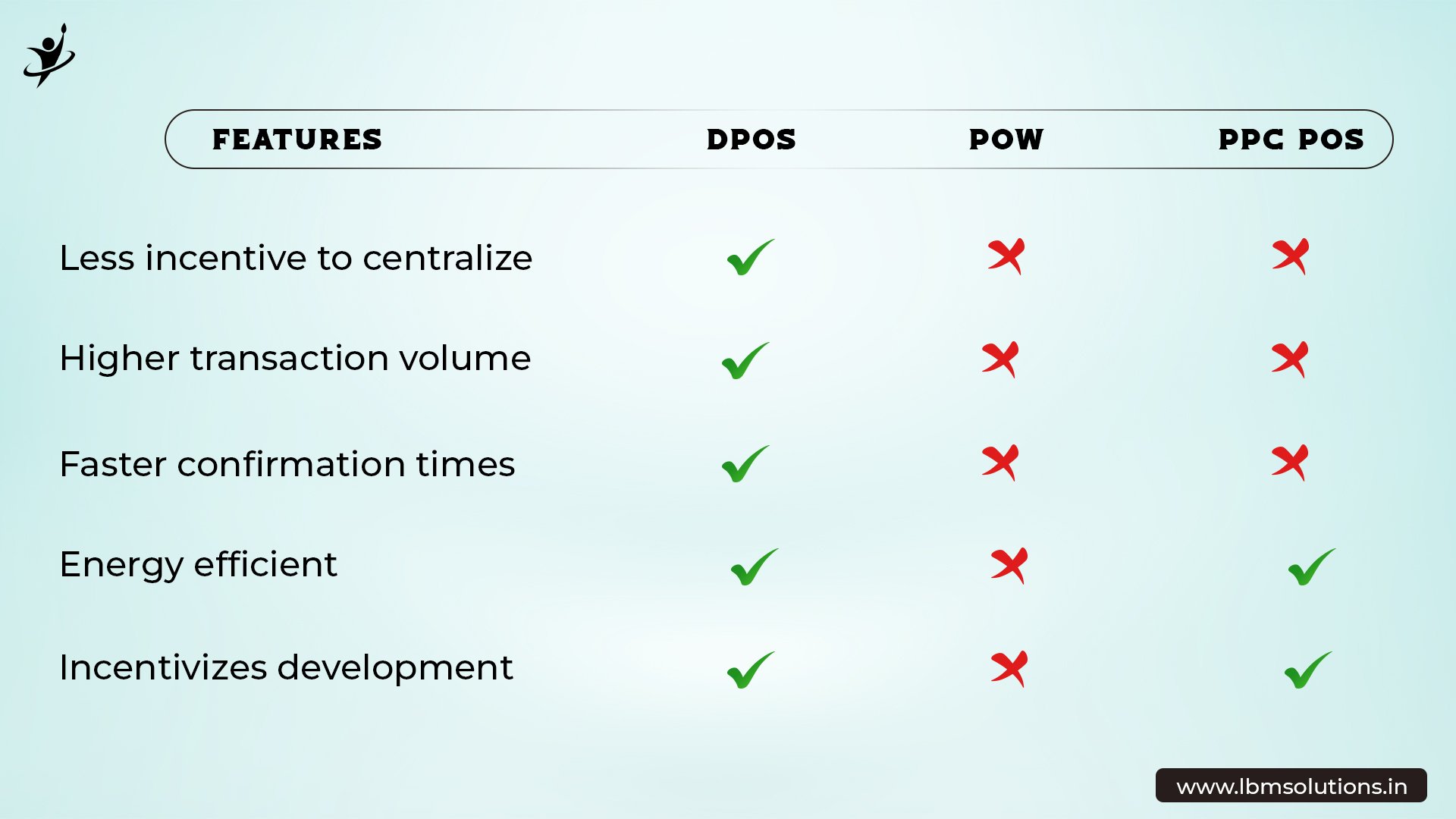
Navigating Proof of Authority
While DPOS takes the spotlight, another impactful consensus mechanism is Proof of Authority (PoS). Operating as a trust club where authenticated nodes validate transactions, the Proof of Authority blockchain finds its place, particularly in enterprise solutions. It ensures trust through authenticated participants, with examples like Quorum by JPMorgan Chase highlighting its application in creating secure and efficient enterprise blockchain solutions.
Proof of Authority blockchain improves processes across diverse industries, from supply chain tracking to legal document verification. Microsoft’s Azure Blockchain Service, using Proof of Authority provides a secure environment for enterprise blockchain solutions. The practical applications continue to evolve, showcasing its potential for streamlining and securing various business processes.
Every consensus mechanism, including DPOS, faces challenges. Scalability, security, and adoption hurdles are actively addressed by development companies. The commitment to overcoming these challenges is a testament to the resilience of the blockchain community and its dedication to shaping a robust and scalable future. For example, the Ethereum 2.0 upgrade signifies a significant step towards addressing scalability concerns through the transition to the Proof of Stake.
Rapid evolution and emerging trends:
The rapid evolution of blockchain technology demonstrates and shows its adaptability to change. New consensus mechanisms, collaborative efforts, and innovative solutions continually redefine how industries operate and secure data. The flexibility of blockchain development companies allows for quick and easy adaptation to the changing needs of the ecosystem. The ongoing evolution reflects the industry’s resilience and commitment to staying at the forefront of technological advancements.
Throughout this extended journey, we’ve not only found the differences of DPOS, observed the rise, and acknowledged the indispensable role of blockchain development company but also explored emerging trends and looked ahead to the next wave of innovation.
Exploring the emerging trends in blockchain development, including cross-chain interoperability, non-fungible tokens (NFTs), and decentralized finance (DeFi). These trends shape the next phase of blockchain evolution, with development companies at the front, pushing the boundaries of what blockchain can achieve.
Community engagement and the road ahead
The blockchain community remains a vibrant force in shaping the future. Forums, conferences, and online communities foster collaboration and idea exchange. Staying engaged with the community is not just a way to stay informed but also an opportunity to contribute to the evolution of blockchain technology. As the community continues to grow, the exchange of ideas becomes a driving force for further innovation.
As blockchain technology grows and matures, development companies will refine consensus mechanisms, address challenges, and unlock new possibilities. The future holds exciting ideas, driven by innovation and the tireless efforts of development companies worldwide. The evolving landscape invites exploration and participation, encouraging stakeholders to contribute to the ongoing narrative of blockchain’s transformative potential.
Exploring New Horizons
Cross-chain interoperability: The concept of cross-chain interoperability gains prominence, allowing different blockchains to communicate and share data seamlessly. This development opens up new possibilities for collaboration between blockchains, enhancing the overall efficiency and versatility of the decentralized ecosystem.
Non-Fungible Tokens (NFTs): The rise of non-fungible tokens (NFTs) is a testament to the creative potential of blockchain technology. These unique digital assets, often representing art, music, or collectibles, are tokenized on the blockchain, providing authenticity and ownership in the digital realm. The growing popularity of NFTs showcases the diverse applications of blockchain beyond traditional financial transactions.
Decentralized Finance (DeFi): Decentralized Finance (DeFi) reshapes traditional financial systems by providing decentralized alternatives to conventional banking services. From lending and borrowing to trading and asset management, DeFi platforms operate without intermediaries, offering users greater control over their financial assets. The rapid growth of DeFi reflects the demand for more inclusive and transparent financial systems.
With these insights, we’ve expanded our understanding of DPOS, explored real-world applications, and acknowledged the pivotal role of development companies. We’ve also ventured into emerging trends shaping the next phase of blockchain evolution. The journey into the intricate world of blockchain continues, fueled by innovation and the collaborative efforts of development companies worldwide.
Conclusion: Wrapping Up the Blockchain Journey
In conclusion, the blockchain landscape is a dynamic mixture of innovation with DPOS, PoS, and Proof of Authority serving as key pillars of blockchain development companies. Leading blockchain development companies, with their commitment to innovation and security, play an instrumental role in paving the way for a decentralized and secure future.
